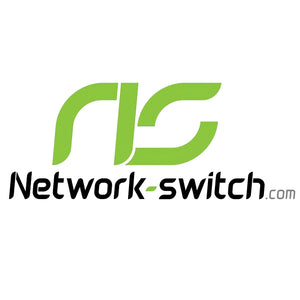Have you ever stood in front of the networking aisle at your local electronics store, staring blankly at devices labeled hub, switch, and router, wondering which one you really need? You're not alone! Navigating networking devices can feel overwhelming, especially if you're not tech-savvy. Let's simplify it together, so you never have to feel confused again.
What Are Hub, Switch, and Router?

Hub: Think of a hub as an old-fashioned loudspeaker. When one device speaks, everyone else hears—even if they’re not the intended recipient. It's straightforward but highly inefficient, causing frequent data collisions.
Switch: Imagine a switch as your friendly postal worker, delivering letters directly to the right addresses. It intelligently identifies which device needs which data, reducing unnecessary traffic and improving speed.
Router: A router is like a GPS system for your network—it guides data precisely where it needs to go, even across multiple networks, like connecting your home devices to the wider internet.
Clear Differences Between Hub, Switch, and Router (Easy Comparison)
| Feature | Hub | Switch | Router |
| OSI Layer | Layer 1 (Physical) | Layer 2 (Data Link) | Layer 3 (Network) |
| Data Delivery Method | Broadcast to all devices | Targeted using MAC addresses | Routed using IP addresses |
| Efficiency | Low (many data collisions) | High (efficient and targeted) | High (efficient and secure) |
| Best Used For | Basic and small setups | Home and office LANs | Internet access, connecting networks |
Future Trends and How to Upgrade
Feeling left behind by technology can be frustrating. Thankfully, networking devices continually improve, becoming faster, smarter, and easier to manage. Watch out for these key trends:
- Wi-Fi 6 and 7: Faster internet and improved handling of multiple devices.
- Software-Defined Networking (SDN): Simplified network management through software solutions.
- Enhanced Security: Built-in cybersecurity features that protect you from growing online threats.
- IoT Support: Future devices will easily handle numerous smart-home connections.
When upgrading, select devices with these modern capabilities, ensuring your network stays ahead, fast, and secure.
Which Device to Choose and Where to Buy
Making Your Choice Easy:
Choose a Hub: Only if you're setting up a very simple, minimal-use network (although switches are recommended instead).
Choose a Switch: Ideal for connecting multiple devices within a local network efficiently.
Choose a Router: Necessary for connecting to the internet and managing network security.
Best Places to Buy:
Choosing a trustworthy seller ensures you get authentic, reliable products:
Amazon: Convenient shopping, wide range of options, detailed reviews.
Best Buy: Great for immediate, in-store pickup and advice.
Newegg: Preferred by tech enthusiasts for competitive pricing and specialized products.
Network-switch.com: An authorized distributor of renowned brands like Huawei, Cisco, and Ruijie, guaranteeing authenticity, reliable warranty support, and expert customer service. Highly recommended for business or professional users.
Conclusion
Networking doesn’t have to be stressful. By clearly understanding hubs, switches, and routers, you're empowered to make informed choices that enhance your digital experience. Choosing wisely transforms confusion into confidence, resulting in smoother streaming, faster internet, and fewer headaches.
Frequently Asked Questions (Real-Life Answers)
Q1: Can a switch replace a router?
A1: Not fully. Switches handle internal connections effectively, but you still need a router for internet access.
Q2: Are hubs still relevant today?
A2: Generally no; switches have largely replaced hubs due to improved efficiency and fewer data collisions.
Q3: Managed or unmanaged switch—what's best for beginners?
A3: Unmanaged switches are best for beginners, offering plug-and-play simplicity without complicated setups.
Q4: Do routers affect internet speed?
A4: Older routers can slow down your network. Upgrading to a modern router typically enhances speed and reliability.
Q5: Should I upgrade to a new router now?
A5: If you have multiple devices or experience frequent connectivity problems, upgrading can significantly improve your online experience.
Did this article help you or not? Tell us on Facebook and LinkedIn . We’d love to hear from you!






 https://network-switch.com/pages/about-us
https://network-switch.com/pages/about-us


